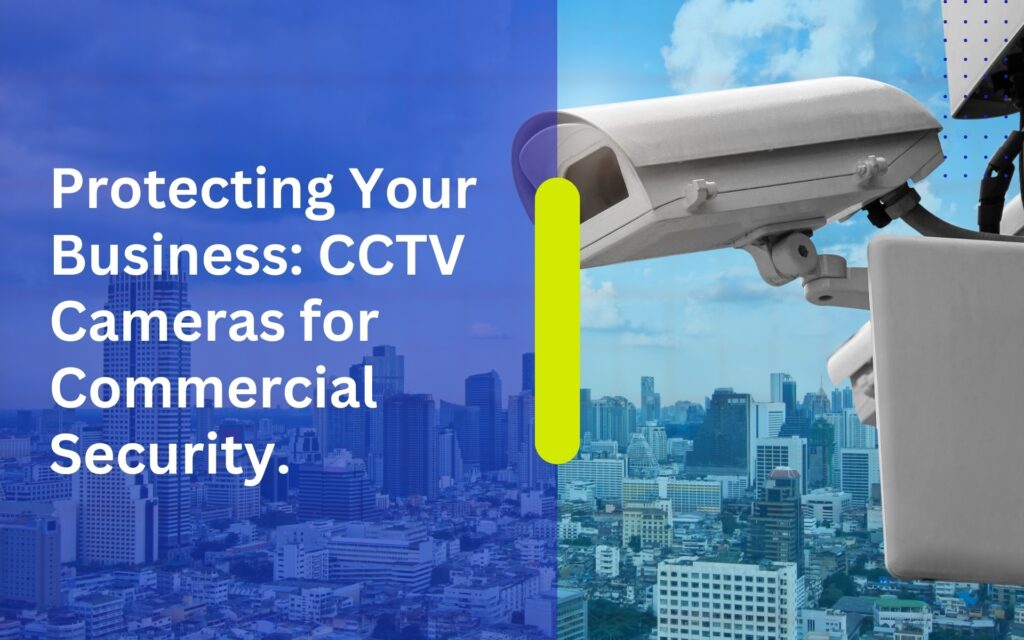A Day of Giving: Visiting Everlasting Hope Childhood Cancer Mission. Introduction. InstallersPH IT Solutions recently had the honor of visiting the Everlasting Hope Childhood Cancer Mission, an experience that deeply moved our …
Protecting Your Business: CCTV Cameras for Commercial Security.

Introduction
In the fast-paced and ever-evolving landscape of business, security is a paramount concern for entrepreneurs and business owners. As technology continues to advance, so do the tools available for safeguarding commercial spaces. One such tool that has proven to be invaluable in the realm of business security is Closed-Circuit Television (CCTV) cameras. In this comprehensive guide, we will delve into the various aspects of CCTV cameras for commercial security, exploring their benefits, types, installation considerations, and the role they play in enhancing overall business protection.
I. The Importance of Commercial Security:
Security breaches can have severe consequences for businesses, ranging from financial losses to damage to reputation. It is imperative for business owners to prioritize security measures to protect their assets, employees, and customers. CCTV cameras serve as a proactive measure, acting as both a deterrent and a means of gathering evidence in the event of an incident.
II. Understanding CCTV Cameras:
CCTV cameras, also known as surveillance cameras, are a type of video camera that transmits signals to a specific set of monitors. These cameras are commonly used for surveillance in various environments, including commercial spaces. The primary components of a CCTV system include cameras, monitors, recorders, and a network for transmitting data.
III. Types of CCTV Cameras for Commercial Use:
- Dome Cameras:
Dome cameras are characterized by their dome-shaped housing, making them inconspicuous and resistant to vandalism.
Ideal for indoor use, dome cameras provide a wide field of view and are often used in retail spaces, lobbies, and offices.
- Bullet Cameras:
Bullet cameras have a cylindrical and elongated shape, resembling a bullet casing.
Suited for both indoor and outdoor use, these cameras are highly visible and act as a deterrent due to their design.
- PTZ Cameras (Pan-Tilt-Zoom):
PTZ cameras offer remote-controlled pan, tilt, and zoom functionalities.
These cameras are versatile and can cover large areas with a single camera, making them suitable for expansive commercial properties.
- IP Cameras:
IP cameras use the Internet Protocol to transmit data over a network.
With high-resolution capabilities and remote access features, IP cameras are ideal for businesses requiring advanced surveillance solutions.
- Wireless Cameras:
Wireless cameras eliminate the need for complex wiring, offering flexibility in installation.
Suited for businesses where wired installations are challenging or impractical.
- Day/Night Cameras:
Day/Night cameras are equipped with infrared technology for clear imaging in low-light conditions.
Ideal for businesses that require 24/7 surveillance, such as warehouses or outdoor facilities.
IV. Benefits of CCTV Cameras for Commercial Security:
- Deterrence of Criminal Activity:
Visible CCTV cameras act as a deterrent, dissuading potential intruders and criminals from targeting the business premises.
- Documentation of Incidents:
CCTV cameras record footage in real-time, providing valuable documentation in the event of theft, vandalism, or other security incidents.
- Employee Productivity and Accountability:
CCTV cameras can be used to monitor employee activities, ensuring productivity and accountability in the workplace.
- Remote Monitoring and Access:
Many modern CCTV systems allow remote monitoring, enabling business owners to access live footage and recordings from anywhere with an internet connection.
- Reduced Insurance Costs:
Installing CCTV cameras can lead to reduced insurance premiums, as the presence of surveillance systems is often associated with lower risk.
- Enhanced Customer Safety:
CCTV cameras contribute to the safety of customers within commercial spaces, fostering trust and loyalty.
V. Key Considerations for Installing CCTV Cameras:
- Strategic Placement:
Identify critical areas for surveillance, such as entrances, exits, cash registers, and high-value merchandise locations.
- Legal Compliance:
Ensure compliance with local laws and regulations regarding surveillance and privacy. Displaying signage indicating the presence of CCTV cameras is often a legal requirement.
- Quality of Cameras:
Invest in high-quality cameras with sufficient resolution to capture clear images. Consider factors such as weather resistance for outdoor cameras.
- Scalability:
Choose a CCTV system that can be easily scaled to accommodate future expansion or changes in business layout.
- Storage and Retention:
Determine the required storage capacity for recorded footage and establish a retention policy to manage data effectively.
- Integration with Other Security Systems:
Integrate CCTV cameras with other security systems, such as access control and alarm systems, for a comprehensive security solution.
VI. Installation and Maintenance:
- Professional Installation:
Engage professional installers to ensure proper setup, positioning, and configuration of CCTV cameras for optimal performance.
- Regular Maintenance:
Schedule regular maintenance checks to ensure cameras are functioning correctly, and firmware/software is up-to-date.
- Training for Users:
Provide training for employees responsible for monitoring and managing the CCTV system, ensuring they are familiar with its features and functionalities.
- Backup Systems:
Implement backup systems, such as uninterruptible power supplies (UPS) and redundant storage, to ensure continuous surveillance even during power outages or equipment failures.
VII. The Future of CCTV Technology:
As technology continues to advance, the future of CCTV cameras in commercial security holds promising developments. AI-driven analytics, facial recognition, and integration with smart building technologies are anticipated to enhance the effectiveness and capabilities of CCTV systems, providing businesses with even more robust security solutions.
Conclusion
Investing in CCTV cameras for commercial security is a proactive and essential step towards safeguarding your business, employees, and assets. The diverse range of camera types, coupled with their numerous benefits, makes CCTV systems a versatile and effective tool for businesses of all sizes. By understanding the types of cameras available, their benefits, and the key considerations for installation, business owners can make informed decisions to create a secure and protected environment for their enterprise. As technology continues to evolve, embracing the latest advancements in CCTV technology ensures that businesses stay ahead in the ever-changing landscape of commercial security.
Related Articles
Process of Supply and Installation of Doorbell Intercom System. Introduction. Security and controlled access have become essential for homes, offices, and commercial spaces in today’s environment. Knowing who is at the door …
A Heartfelt Visit to Mayari Animal Rescue Organization. Introduction. As part of our commitment to social responsibility and compassion beyond the workplace, InstallersPH IT Solutions recently organized a meaningful outreach visit to …



